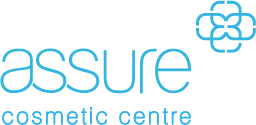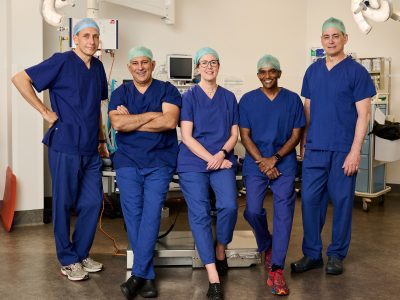Abdominoplasty, also known as a ‘tummy tuck’, is a cosmetic procedure to recontour the stomach by removing excess skin and fat from the lower abdomen, while tightening muscles of the abdominal wall. If your stomach is affected by obesity, skin laxity following pregnancy or weight loss, muscle repair following pregnancy, or scars from previous surgery, then abdominoplasty may be suitable for you.
A tummy tuck can change body shape, but is not a substitute for weight reduction nor a cure for obesity. It is ideal for people who are relatively lean but suffer from loose abdominal skin that does not respond well to diet or exercise.
Tummy Tuck in Perth
Abdominoplasty can provide a smoother and firmer appearance for the stomach area. Results are immediate and will be long lasting if a healthy lifestyle is maintained. If you are planning to become pregnant, you may wish to consider delaying the surgery, as the results may be compromised or lost as a result.
Book a Consultation
To find out if tummy tuck surgery in Perth is right for you, the first step is to book an appointment with one of our Specialist Plastic Surgeons.
At Assure Cosmetic Centre, you’re in the care of a highly skilled medical team. Through your journey with us you will feel informed and comfortable and able to make the decision that is best for you.
Frequently Asked Questions
Tummy Tuck
Positive outcomes for tummy tuck surgery are typically achieved in individuals whose weight closely aligns with their recommended Body Mass Index (BMI) and exhibit some laxity in the abdominal skin or a mild excess of fat, or bulging of the abdominal muscles. It’s important to note that while the results are generally long-lasting, significant weight fluctuations or future pregnancies may reverse some of the benefits of the procedure. Your Specialist Plastic Surgeon at Assure Cosmetic Centre is the best person to determine if your expectations are achievable.
Abdominoplasty surgery in Perth encompasses several techniques, each designed to address excess tissue, fat, and skin in the lower abdomen. Some patients may also require abdominal muscle tightening and repair, particularly following pregnancy. In certain cases, repositioning of the navel may be necessary. Your Specialist Plastic Surgeon will thoroughly evaluate your physical condition and individual requirements to determine the most suitable technique for your specific needs.
Modern post-operative treatments are also becoming increasingly popular in assisting with the healing process of a tummy tuck and other cosmetic surgery procedures. Assure Cosmetic Centre offers LED Therapy as an effective, non-invasive skin treatment to support recovery.
In Perth, abdominoplasty is performed in an accredited hospital under general anaesthetic. You can expect to be discharged after a short stay of a few days in hospital. This will depend on your general health, the extent of the procedure, and your surgeon’s advice.
You will need to attend a post-operative consultation approximately 5-7 days after tummy tuck surgery, and again 7-14 days after surgery with subsequent post-op visits if required.
A pressure garment is to be worn for 6 weeks after surgery.
All plastic, cosmetic and reconstructive surgical procedures come with risks and potential complications. To ensure successful surgery, it is crucial to understand and minimise these risks. Whilst all measures are taken to mitigate risks, some risks are unavoidable.
All information on this page is general in nature – your Specialist Plastic Surgeon will discuss the specific risks and complications pertinent to your individual surgical procedure during your consultation. General risks for surgery are listed here.
Specific risks related to abdominoplasty surgery include, but are not limited to:
While your Specialist Plastic Surgeon will do their best to minimise their visibility, scars are an unavoidable outcome of any surgical procedure. In some circumstances, scars can be hidden inside the bikini line where they may be easy to conceal. If you have a history of keloid or hypertrophic scarring, it’s essential to inform your surgeon about this tendency before the procedure.
Although no major complications are expected with a tummy tuck, you may have some bruising and swelling after surgery. You may have a feeling of tightness in the lower abdomen and there is usually an area of diminished sensation, which can persist for several months. Other possible side effects include a collection of fluid that may form under the skin and require aspiration. Infection is rare and is treated promptly with antibiotics should it occur. Your Specialist Plastic Surgeon will discuss what you can expect from this procedure. It is important to carefully follow your plastic surgeon’s advice to reduce the risk of complications.
Typically most patients resume work within 2-4 weeks after an abdominoplasty, and engage in more strenuous exercises after 6 weeks. Your Specialist Plastic Surgeon may advise the use of a supporting girdle to assist with optimal healing and body contour. You will need to wear post-surgical compression garments for about 6 weeks to minimise swelling and aid in the healing process.
It’s essential to highlight that each patient’s recovery process requires sufficient time, support, and proper postoperative care. Healing abilities and pain tolerance may vary among individuals, resulting in differences in recovery duration and the ability to engage in various activities.
An initial consultation with your Specialist Plastic Surgeon will cost approximately $300-$360, which is payable in full at the time of booking your consultation. Your consultation will take approximately 30-60 minutes.
Your Specialist Plastic Surgeon will provide an indication of the likely costs, such as your surgeon’s fee, anaesthetist’s fees and hospital and theatre fees. Your surgeon’s fee includes all post-operative care and nurse dressings. Pricing will vary from case to case, but an indicative range of your surgeon’s fee is $7,000 to $12,000 excluding GST. Anaesthetist, hospital and theatre fees are additional.
There may be Medicare and private health insurance rebates available for certain types of tummy tuck procedures in Perth (e.g. following weight loss or muscle repair after pregnancy) depending on strict Medicare eligibility criteria. Your surgeon can provide you with more information, but you would then need to talk to your private health insurer to determine exactly how much cover they will provide and confirm what your final out-of-pocket costs will be.
Weight loss patients
To be eligible for Medicare item number 30177 for weight loss patients, you must fulfill the following criteria:
- there is intertrigo (common inflammatory skin condition that is caused by skin-to-skin friction) or another skin condition that risks loss of skin integrity and has failed 3 months of conventional (or non-surgical) treatment; and
- the redundant skin and fat interferes with the activities of daily living; and
- the weight has been stable for at least 6 months following significant weight loss, as defined as at least five BMI points or more (on average 15kg or more) unrelated to pregnancy, prior to the procedure.
Your GP referral to us should contain documented symptoms of pain and discomfort, along with evidence of non-responsive outcomes to non-surgical conservative treatment.
Muscle repair after pregnancy patients
To be eligible for Medicare item number 30175 for patients with muscle separation (diastasis) after pregnancy that is causing pain and require muscle repair, you must fulfill the following criteria:
- it is more than 12 months after the end of a pregnancy; and
- you have a diastasis (muscle gap) of at least 3cm measured by diagnostic imaging; and
- have documented symptoms of at least moderate severity of pain or discomfort at the site of the diastasis in the abdominal wall during functional use and/or low back pain or urinary symptoms likely due to rectus diastasis; and
- have failed to respond to non-surgical conservative treatment including physiotherapy (acceptable examples of conservative non-surgical treatment include symptomatic management with pain medication, lower back braces, lifestyle changes, physiotherapy and/or exercise).
Please be aware that the 30175 item number is applicable only once per lifetime. Make sure your GP referral includes diagnostic imaging, documented symptoms of pain and discomfort, as well as evidence of unresponsiveness to non-surgical conservative treatment.



